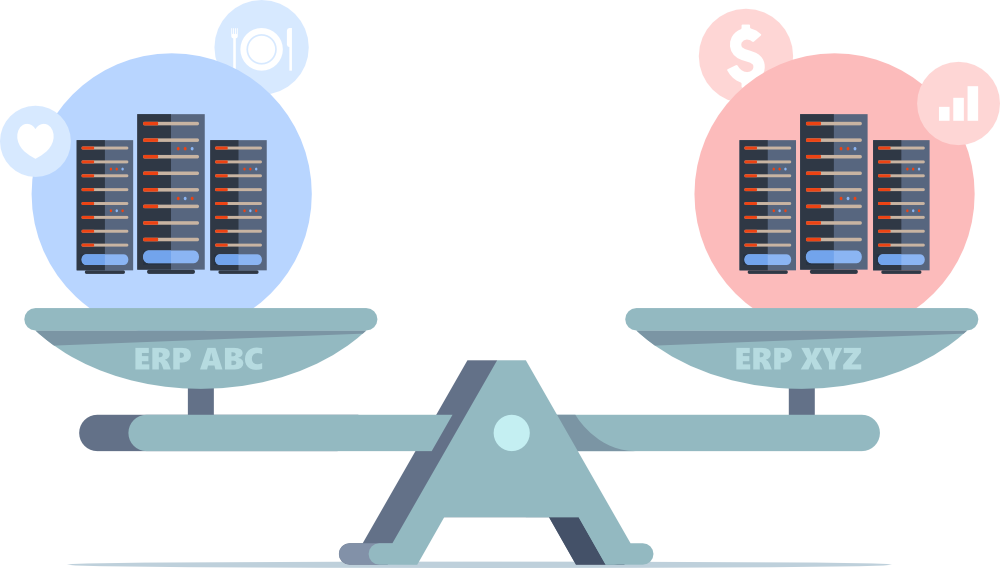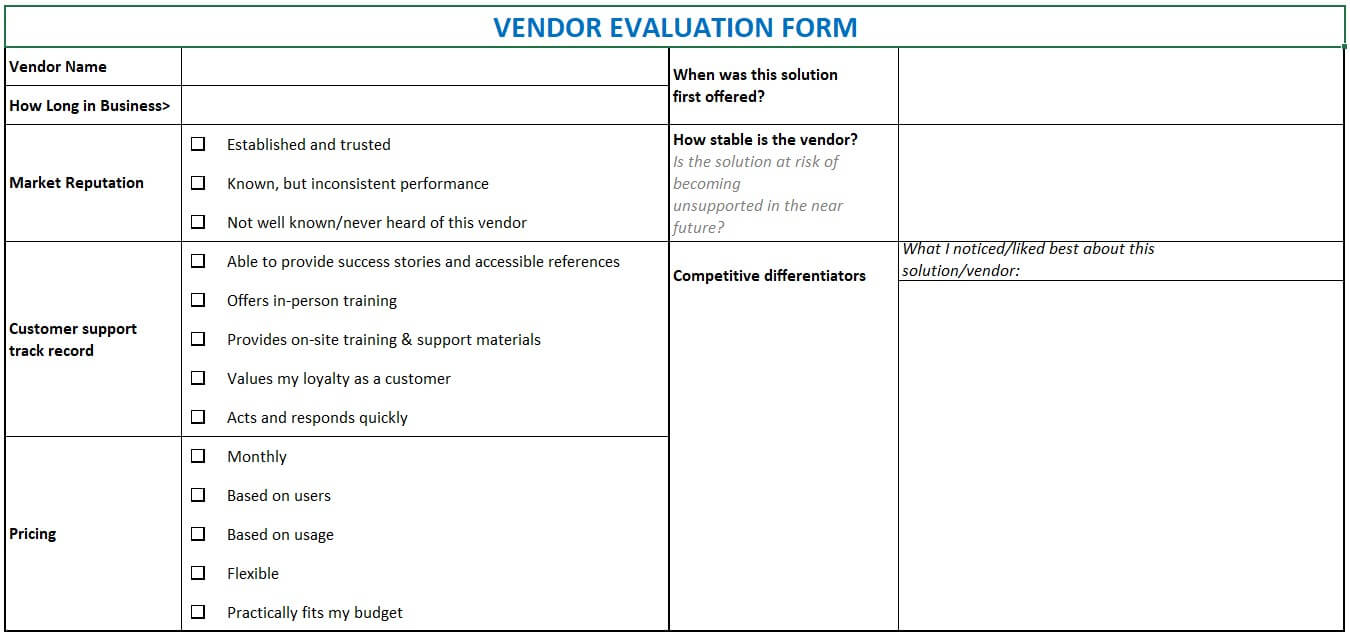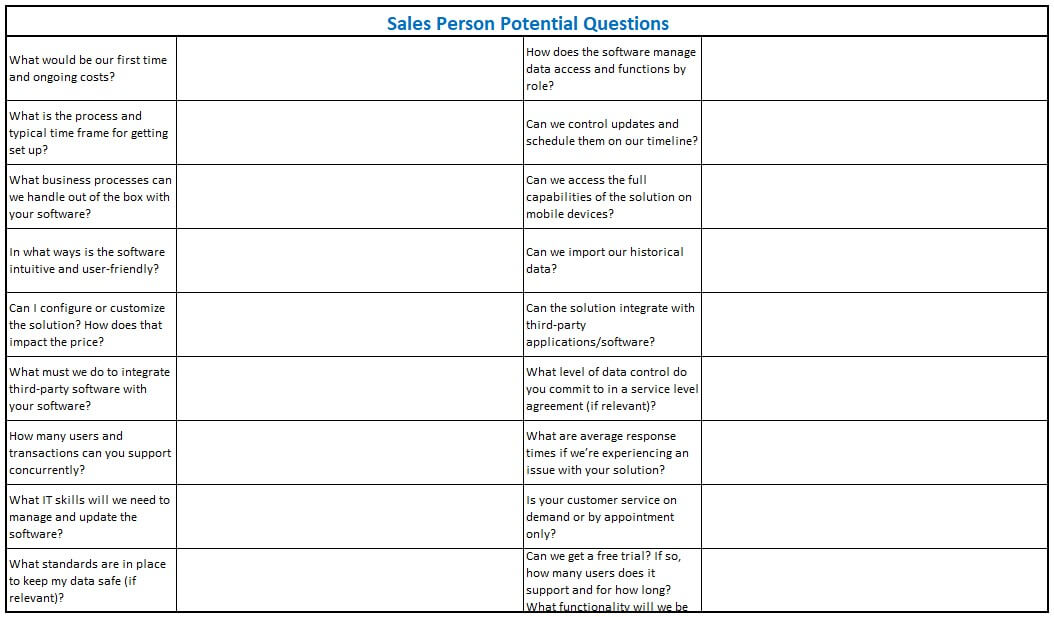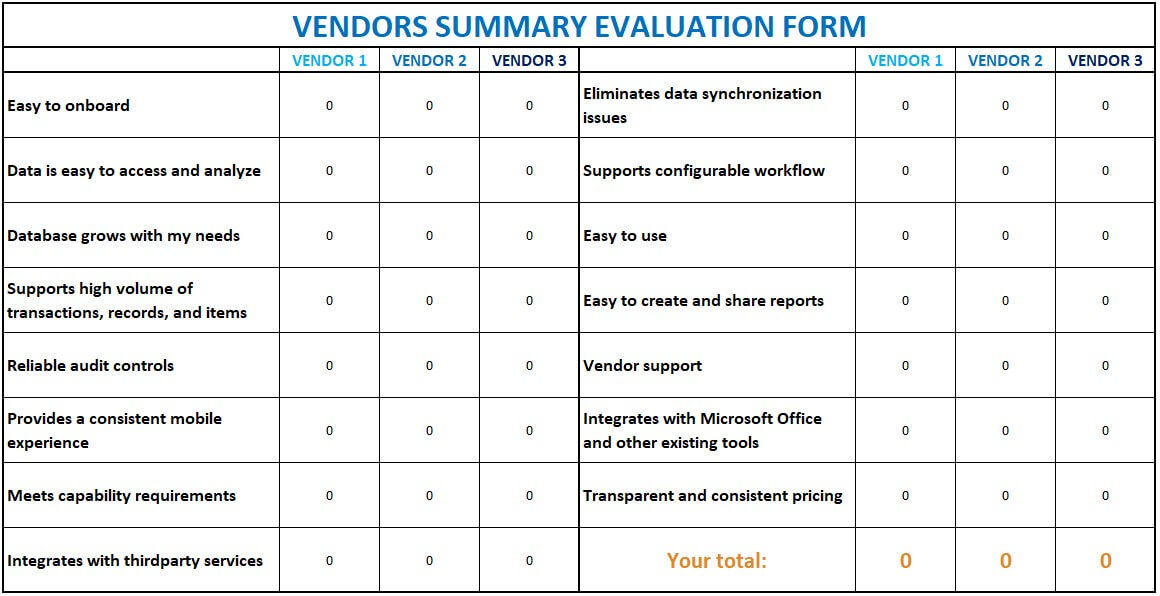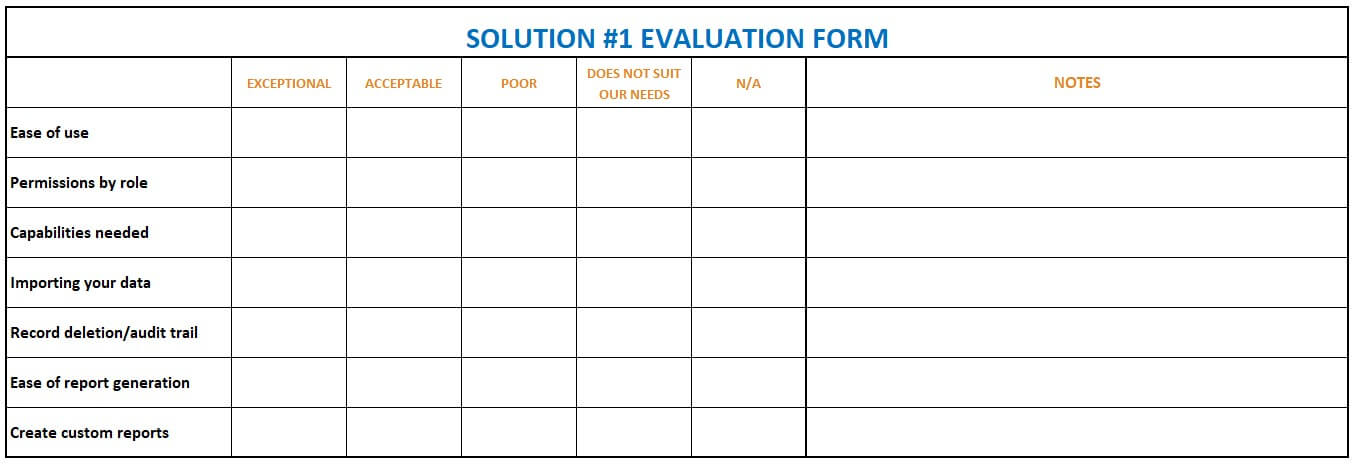Download the Excel Spreadsheet
Therefore, the next important aspect when choosing ERP vendors is to determine the pricing model of the ERP software which will help you to find the most cost-effective ERP solution for your organization.
5. When was the Solution first offer?
Another important aspect of choosing your ERP vendor is to know when the solution was first offered and how long it is on the market.
This information will give you a clear picture of whether the ERP system is new or already established in the market. Typically, older ERP systems have been already proven by many companies.
Long-standing ERP systems often come with a team with a ton of experience within the industry and the systems are usually very stable with proven implementation methodology for each industry to ensure the system delivers the best practices and efficiency for your business.
Also, the longer the history of the ERP vendor and their partners is the more stable the product is. The same applies to the service provider partner that offers to implement these systems.
Searching for more established ERP vendors and partners brings certain comforts for the implementation project and the system itself.
6. How Stable is the Vendor?
The next key part of ERP vendor research is to understand how stable the ERP vendor on the market is. I have already a little bit mention this in the previous part but let us describe it more.
Often ERP systems are long-term investments due to their high cost. It used to be, businesses implemented the on-premises ERP system and have been using the same system for the next ten to twenty years with minor upgrades.
Nowadays with cloud technology, the ERP systems can be even longer an investment for businesses as it works on SaaS (Software as a Service) pricing model, where businesses pay monthly or yearly subscription fee.
Cloud ERP software often lowers the initial cost of implementing an ERP system making it more affordable for even smaller size businesses. Also, Cloud ERP systems come with continual upgrades ensuring that the business runs on the latest version that comes with the latest technologies.
Like this, businesses can focus on optimizing their ERP system and adding extra customization without worrying that in the next 10 years or so, they will have to implement a new system and redo everything.
However, this makes it even more important to find a stable ERP vendor with a promising long future as your business might be using the vendor’s ERP system for the next few decades or even longer.
7. Competitive differentiators
The last part of researching ERP vendors and their partners is their competitive differentiators.
At first, all ERP systems might sound the same to you with the same features and capabilities, but nothing could be further from the truth.
Each ERP vendor offers a different set of tools, customizations, and other aspects of the ERP system that might fit your business needs. Therefore, the very important aspect of researching ERP vendor and their partners is to find out the competitive differentiators.
Step #2: Interview the Vendor: What Questions to Ask of ERP Vendors?
Once you have all the information you need about the potential ERP vendors, the next step when evaluating ERP vendors in Malaysia is to interview them.
This can be done via a call like Microsoft Teams, personal meeting or simply sending the list of questions on the email and let them answer it.
Of course, the questions you want to ask depends on your needs and the challenges that you are facing and want to solve. However, there are some standard questions that we recommend asking when you are evaluating ERP vendors.
We have prepared a list of common and recommended questions that you can see here in this picture.

